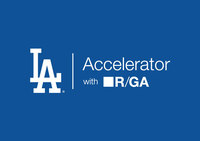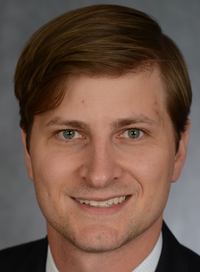Tuesday, August 25, 2015
Why The LA Dodgers Accelerator Is Combining Sports, Investment and Startups

At first glance, it might not be clear why a sports organization like the LA Dodgers might be in the business of startup accelerators--until you realize that the current owners of the Dodgers, including Mark Walter, Magic Johnson, Stan Kasten, Peter Guber, Bobby Patton and Todd Boehly--are all from the investment and entrepreneurial world, even as much as they are from the sports and entertainment world. We caught up with Tucker Kain, CFO of LA Dodgers and Managing Director, Guggenheim Baseball Management LP, to understand that link better, and why the organization has so enthusiastically embraced startup acceleration with the first class of the LA Dodgers Accelerator (www.dodgersaccelerator.com), which it launched its first class of ten companies yesterday.
How did the idea to launch your own accelerator come about?

Tucker Kain: In 2012, when the current ownership group bought the Dodgers, the group they pulled together was pretty heavily investment focused. They all had come from backgrounds as investment professionals, which is how they had built their own businesses. As we came in, and started looking at opportunities the Dodgers had in front of them, they saw many great, smart, innovative young companies approaching us. Those companies wanted to partner with us, and to put commercial arrangements in place with the Dodgers, to better validate their product and why they were building what they were to solve industry issues.
What we realized, is that using a platform like the Dodgers to validate those products, and at the same time, solve some of our own problems, made a lot of sense. It ended up being a pretty interesting opportunity, where we could create value not just for us, but industry-wide. With the background of our ownership group, and their interest in putting capital to use and our resources to work, we saw the opportunity to create strategic partnerships. That not included the relationships and network that our owners bring to bear, but also capital.
That strategy manifested in our launching this program, which is in day one as of today, as one of the opportunities we saw in the market. That reflects our ownership's willingness to take some risk, and invest dollars in creating value, while also looking for ways to mitigate the downside a bit and change the odds on a business, and at the same time, participate in the growth and value created by doing so. That's how we approached it. We saw the opportunity, and decided to put resources where our heads where. We've been pleased with the response from the market, and from interest in the early stage businesses in our industry, and we're really excited about the tons of businesses we're launching today.
What's the big value of linking a sports team like the Dodgers to these startups?
Tucker Kain: One thing we've found, is the ability to bring a brand like the Dodgers to bear on these early stage businesses opens up opportunities for them, from our network of mentors and industry experts. You have to start and end with our ownership, particularly Mark Walter of Guggenheim Financial, Magic Johnson, who needs no introduction due to his brand and businesses in sports and entertainment; and Peter Guber, one of our co-owners, who also is an owner of the Golden State Warriors, and the new Los Angeles Football Club. The breadth of scope of our entire business group adds value.
In a lot of ways, they all realize how early businesses are funded and started, and also understand the opportunity something like Dodger Stadium gives to pilot some of those opportunities. All of that combined can change the odds of success for companies. There are lots of great, innovative young businesses, but lots of them fail, unfortunately. The question is, how do you differentiate those companies ,and pick which ones will succeed? We bring lots of things to bear, and by partnering with a digital agency like RG/A, we are also able to add lots more value, and change the odds for those young companies. That also allows us to help solve some of the issues which are widespread in our industry, by supporting the category leaders, and future category leaders in the space. It's all of that coming together, which is what really interested us in getting involved in the process.
The people who are familiar with your ownership's financial background might understand this move, but how about the fans—who might not be so aware of the business of sports?
Tucker Kain: We're always thinking of our fans, and creating a better experience, a better product, and a better team on the field. We're always thinking about how we can deepen and increase our relationship with our fan base. With our platform, we are always also thinking about operational issues, about how people interact with the sports business, and we are bringing all of that to bear in a program like this. I'm not sure our fans are overly concerned about the ancillary pieces of our business, and the operational efficiency opportunities we have here, but at the end of the day, they are all intended to enhance and increase the value proposition the sports and entertainment industry provides. That should all accrue benefit to our fan base, and better engage them with the sports industry. It's been an interesting conversation for us, when people ask what a baseball team is doing in the early stage, business financing industry. It's a good question, and an understandable question, but you'll see our owners have provided us with the resources to manage a number of these things, from upgrading Dodger Stadium and putting $200M into the building, increasing the quality of the fan experience, our willingness to spend resources on the field, by acquiring players and improving our product, and improving the efficiency of capital, time, resources, and more for the industry, from a general, operational perspective. We want to life all boats, and grow the space.
How was experience finding companies for this first class of startups?
Tucker Kain: It's been great. We launched the program earlier this year, and got lots of positive feedback. We had almost six hundred companies apply to be included. For us, the ability to go through and understand each of these companies and what they were doing, how they were approaching the marketing, the problems they were attempting to solve, and how they overlay with our business, was incredibly productive. It gave us an incredible view into the space. The process of culling that list down to ten companies was very difficult. But, at the same time, it gave us a tremendous opportunity. These ten companies are great businesses, all in our space, some in related categories. Some might not fit the traditional, accelerator model, but still saw the value of partnering with the Dodgers and RG/A, and we also have many traditional, accelerator candidates, who have great ideas and young businesses, and impressive founders. We're excited to get behind them, and help them build their vision, and build a forward looking business. We have a great cross section of companies. It's really increased our understanding of the industry, and what exists for our business, and really illuminated the quality of work which is being done in our space.
How did you select who would make the final ten companies?
Tucker Kain: There were a number of factors. We were looking for places where we could be strategic, and add value, making sure it wasn't a one way street. We want the Dodgers brand, and R/GA's core competencies to be very valuable and strategic to these companies. We also wanted to make sure the companies helped address some issues in our business. We definitely layered them ove rour own business, and combined that with the ability for us to be strategic, where we could apply our mentor network, and make sure we found the ten most interesting and collaborative businesses to bring into the program.
Finally, what's the next steps for the accelerator?
Tucker Kain: Our next step is rolling up our sleeves, and digging in for the next three months or so. We're getting into those businesses, understanding them all the way to the core of their business, and figuring out ways to bring our mentor network, the owners in the Dodgers, to bear directly on their business. We want to create opportunities, change the odds of success, and really create great outcomes. We're going to be heads down, rolling our our sleeves, and working through those businesses, with a goal of rolling them out at Demo Day in mid-November,and hopefully have them in an even better position than where they started. From there, we will continue to contribute where we can, and participate in the ongoing innovation and elevation of the sports and entertainment industry.
Thanks!